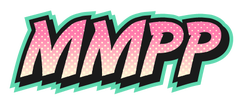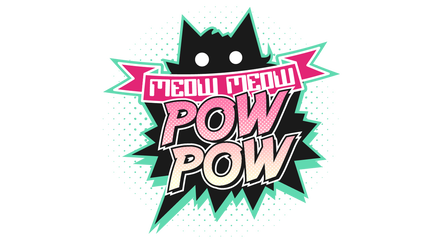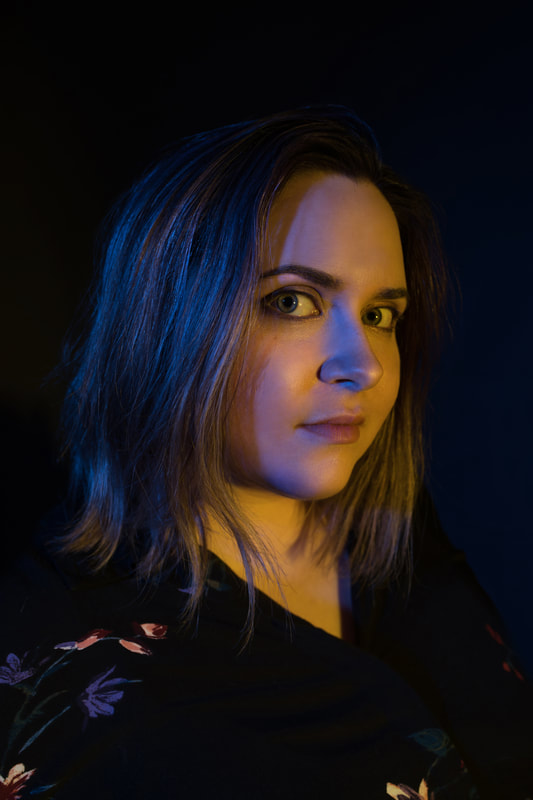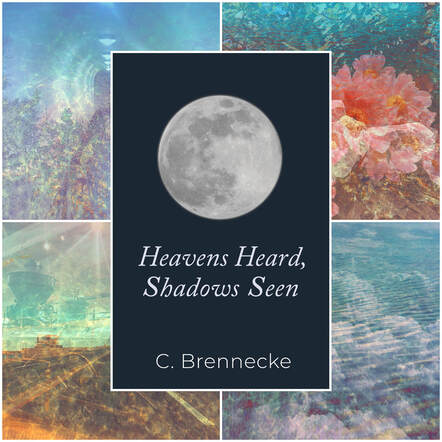|
1/24/2022 From Out of the Mist...A PROFILE OF THE AUTHOR, POET, & ARTIST, C. BRENNECKE One night during a tabletop game session at Temple University in Philadelphia, Pennsylvania, a burgeoning artist by the name of C. Brennecke (on Twitter as @_cbrennecke) received the muse - no, not one of the Lovecraftian elder things usually involved in the "Cult of Cthulhu," but a propensity for building worlds and inventing characters. This would evolve into a passion for creative writing that would complement her work as a visual artist, and has resulted in a photography and poetry collection, alongside her work in fiction with a novel in the fantasy genre that promises "vice-filled adventure" in an "exotic world." Brennecke and I corresponded about her current and upcoming projects, finding inspiration, balancing different tracks as a multimedia artist, the influence of tarot on her storytelling, and how important it is to emerge from the mist of self doubt to "put yourself out there" as a writer and artist. Can you tell me how you conceived and assembled your photo/poetry collection, “Heavens Heard, Shadows Seen”? Were you satisfied with the idea’s execution, and how did you find the reception to it? When I started writing the poems in “Heavens Heard, Shadows Seen,” the notion of someday publishing them wasn’t remotely on my mind. I was simply capturing and processing my experiences, and at first it was something I only did on rare occasions. Over time poetry became something that I turned to more regularly as the process proved to be exceptionally therapeutic. It wasn’t until I had enough poems of decent quality to fill a book that I started considering putting a collection together. And even then, it was another two or three years until I had amassed just the right combination of poems which flowed together and felt right to publish as a cohesive collection. When it came to the artwork, I wanted the medium to reflect the content as much as possible. So, I chose to use personal photos taken throughout the same years that the poems were written, choosing ones that tied to specific memories when possible, or that connected to the imagery or mood depicted when not. I then layered them in order to draw attention to some details and to obscure others, similar to how poems both share some intimate details and also use symbolism to convey broader meanings that are relatable to a wider audience. I was surprised by how well the book came together, especially towards the end when the project really seemed to gain momentum. And I’ve been equally surprised by its reception. I had initially expected it to hit with a smaller, more specific audience; people who had been through divorce or who had experienced a long term toxic romantic relationship. However, much of the feedback I’ve gotten has been from people who were able to relate to specific poems through entirely different experiences of their own. It’s really taught me how universal some of life’s lessons and experiences are, even when they look different on the surface. How is “Seven Shards” (available for pre-order) coming along? You’ve credited tabletop games as the major influence towards this kind of world building. Am I correct that you didn’t start playing until college? What do you think drew you to it? Any hints of it in your childhood? “Seven Shards” is trucking along, admittedly at a slow pace, but I’m very happy with how the story is developing as it wraps up. There was a while I felt pressured to shorten it, which slowed me down considerably, but at this point I’ve decided to let the story lead the way, allowing it to be told in as many words as it demands. Its initial conception developed out of an attempt to create my own version of "D&D," based on the particular aspects of fantasy stories that resonated with me most. Growing up I had always been drawn to fantasy, but oftentimes felt frustrated when trying to find books that focused more on inner workings of the characters and less on the flashier, dragon-slaying moments. I wanted to explore the more practical and intimate elements of world-building—how the logistics of local governments worked, how spiritual beliefs affected societal structures and practices, how lore gets passed down and lost, the impact of art and drugs and family dynamics, etc. It’s what really sparked my writing journey. Prior to playing roleplaying games ("Call of Cthulhu" being my first, during my freshman year of college), I had virtually no experience with creative writing. But once I started writing character backstories, I fell in love with it. In fact, two of the characters in “Seven Shards” are reworked versions of a character and a backstory character I had created for a "Vampire: The Masquerade" campaign. Tell me about your protagonists, Odessa, Alphonse, and Wyck. How did you decide on having these three share the story? All three of them appeared fully formed in my mind, with little to no effort put into character development on my part. It’s as if their stories wanted (and demanded) to be told. With Wyck, I immediately recognized a lot of parallels to the Fool card in Tarot; he’s impulsive, he doesn’t take the advice he’s given, he's over-focused on looks and appearances, he’s out to prove himself. In short, he’s a lovable idiot that’s an absolute delight to read and write about. He’s the kind of character that would make people shout at their screens in frustration if he starred in a horror film. Alphonse is in many ways the opposite; he’s utterly lacking in confidence, he’s an over-thinker, he’s fear-driven, he’s an underdog with a lot on his shoulders. He’s the kind of character you relate to and root for. Figuring out how to coax his development along, in a way that’s both believable and impactful, has been one of the true joys of writing this story. And Odessa…*swoon*... There’s something about Odessa that you can’t help but fall in love with. She’s the chaos element, even more so than Wyck. She’s raw, flawed, perhaps overconfident, but somehow relatable in a similar way to Alphonse. She’s struggling with loss and a deep-seated fear of death, so many of her choices are driven by avoidance. You really feel for her, even when she’s the one to blame for some of the terrible things she’s experiencing. She’s abundantly human. The three of them came to prominence in the story both because they all end up shaping the overall plot in unexpected ways and because they’re all at that “second coming-of-age” point in their life, which was something I wanted to focus on in this story. They’re adults, but they’re still figuring out their purpose in life and how to grow into that existence, as they leave young adulthood and enter true adulthood. It’s something that I think is under-written about in literature, especially considering its significance in reality when you look at those who have shaped our history and at what point in their lives they did so. I understand that readers can anticipate vices and exoticism, I definitely want to hear those details! While I wouldn’t say it’s a focus, there’s certainly no denying that drugs play a role in the novel, especially in Odessa’s story arc. While some real-life drugs are alluded to, nothing is specifically named and oftentimes the lines between drugs and herbalism and magic are blurred. For example, magical mushrooms play a role, but some of them have very specific effects that you could not expect a mushroom to deliver in the real world—at least not with any consistency! The story also contains a good deal of alcohol, some sex, and a little bit of gambling. I tried to strike a balance between reflecting reality and depicting what's actually relevant to the plot. As for exoticism, I think the goal of world-building is to convey a mix of both the exotic and the familiar with every land and culture you introduce. The title “Seven Shards” refers to the seven lands within the story, each of which I crafted using a mixture of multiple real-world cultures/locations, fantastical influences, logic, and imagination. The landscapes themselves played a big role in developing the cultures’ identities. What kinds of people would decide to live in a land that’s rocky vs. forested vs. full of swamps? How do the natural resources (or lack of them) impact their development over time? I tried to think about what was plausible and logical, while also mixing in the element of magic and fantasy-style racial traits when creating the identity of the lands and cultures. The result, if I succeeded in my task, should give the reader that sense of exotic wonderment that good fantasy is known for, while also feeling like it could somehow be real in some far away universe or multiverse out there. Is this work political in any sense? Any parallels to the kind of issues we are dealing with today? If so, what comes first for you - the world you’re building, or the message you want to convey with these stories? The story is absolutely and inherently political, though I wouldn’t say that is its aim. The core theme of “Seven Shards” is that change is inevitable, regardless of whether or not you choose to accept it. Some of the characters are quite purposeful and in control (or attempted control) when it comes to change, while others are trying their hardest to (unsuccessfully) avoid change at all costs. And of course, many of those changes are politically driven or have political results. The story deals with cultural genocide, slavery, human rights, tyranny, revolution, alternative sexuality and marriage practices, patriarchy, feminism, and societal expectations vs. individualism. While there are certainly parallels to the issues of today in there, I think that sentiment would be true during any given year, both in the past and yet to come. In fact, there are some current-day parallels which occurred after I started writing the story, and then became more impactful to me during editing passes once I had new real-world experiences to relate to them. You’re also working on a manual for vampires called “The Undead Pocket Guide.” From the excerpt I read, I was reminded not so much of “Complete Idiots Guide” installments that were so big at bookstores decades ago, but going back further, the kind of anarchist cookbooks and outlaw guides you’d find in a Loompanics Unlimited catalog! What was your inspiration? And what are some of your favorite works of vampire lore? There’s something about vampires that’s always been alluring to me. Whether it was watching "Buffy," reading Ann Rice novels, or playing "Vampire: The Masquerade," I’ve always enjoyed that titillating mixture of sensuality and danger that vampires possess, as well as the questions about mortality and morality that they bring up. So of course, several of my earliest dabblings with writing had to do with vampires. Most of the vampire stories out there revolve around the human experience of encountering a vampire, but before you can write about that, you have to know what kind of vampire you’re dealing with. Can they turn into a bat? Can they pass as human? Can they be killed? Etc. As I started pondering those questions, I got more interested in the logistics and the vampire side of things. What exactly is it like to be a vampire? Pair that question with the fact that I edit and typeset handbooks as my day job, and the concept of “The Undead Pocket Guide” was practically inevitable. Your “Myths, Mists, and Musings” site also shows off your work in the visual arts. What keeps you painting? How much time do you devote to the canvas as opposed to writing? Have you ever felt pressured to decide between either multimedia or the written word, and how do you manage the balance? Painting is in many ways my first love. There’s something about it that’s very grounding. The racing, jittery parts of your mind turn off and the only thing in focus is the moment that brush (or pencil or charcoal or palette knife) meets canvas. It’s magic. That said, there are some practical limitations that come with painting. The materials are expensive. The amount of space and storage it requires is ever-growing. It can make quite a mess. So it’s something that I fit into my life as much as I can, without it taking over. Writing on the other hand, can be snuck into the confines of life much more easily. If an idea strikes you in the middle of the night, you can grab a small notepad or open up a google doc on your phone, jot it down, and then settle right back into bed. There’s never been a time or situation in my adulthood that I couldn’t in some way find time to write. As such, I’ve probably spent more time writing than painting over the years and there have been spans of time that it’s replaced painting altogether when it comes to how I’ve allocated my passion project hours. That said, in an ideal world, I’d be able to spend equal amounts of time on both—which is something I’ve managed to do ever since the pandemic began, and the result of achieving that balance has been great! When you have more than one passion, it can definitely be difficult choosing how to allocate your time. Self doubt can enter the internal conversation, wondering if one path is a lost cause and not being sure which one is the right one to pursue. All I can say is that it’s best to follow your own instincts and inspirations, and if there are any outside voices pressuring you solely towards or away from a given path, ignore them! “Why not both?” is usually the right approach, in my opinion. In fact, I’ve found that practicing two forms of art can be quite beneficial. It can keep creativity flowing when you hit a block, inspire new ideas and approaches, or even prompt ways to combine the art forms. Are you currently working on a second poetry collection? Will it also have the visual element like with your first book? What other projects are on the horizon? I am indeed working on a second poetry collection—and I’m planning on publishing it later this year. I finished up the writing portion of it a couple weeks ago and it’s currently off with a beta reader for feedback. I plan on spending the next few months on the visual component. This time it will be a series of paintings, but with a twist! Wrapping up “The Undead Pocket Guide” and “Seven Shards” will be my first two priorities to tackle after that, hopefully in quick succession. There’s also a short story I’ve submitted to an anthology that will be published later this year, but I’ll stay mum on that until I find out whether or not it’s been accepted. Further down the line there’s a Tarot-inspired poetry collection I’ve started working on, as well as an epistolary novel about Vampires throughout history. Your blog includes a really detailed breakdown of parallels you found between the Hero and the Fool archetypes in context, respectively, of The Hero’s Journey and in tarot. In what other ways has tarot informed your work? I started studying Tarot shortly after I began writing, and it’s absolutely had an influence. At its core, Tarot is a visual storytelling medium, usually used to diagnose and resolve the hurdles we humans experience in our lives. Between my love of art and my love of writing, it’s no surprise that I took to it once I learned more about what it is and how it works. I’ve found Tarot to be a hugely helpful creative tool when making creative decisions. In some cases I’ve used it in very literal ways (such as Wyck being the embodiment of the Fool card, or with the final poem in “Heavens Heard, Shadows Seen,” which is essentially an ode to the Moon card), and other times I’ve used it behind-the-scenes, to help with resolving plot holes or even to decide which project to prioritize when I’ve had a few too many in the air at once. As a creative working in multiple mediums for several years, what wisdom do you want to pass down to aspiring artists and writers? Put yourself out there. Even if you feel like a fraud, just do it, and keep doing it. Like many artists, I’m innately uncomfortable with attention. As a result, I’ve talked myself out of opportunities to share my creations and talked myself into procrastinating when it comes to putting the finishing touches on various projects. But doing that has only resulted in me hoarding painted canvases and google docs full of partially-written story ideas that no one else has ever laid eyes on. And while that’s not an explicitly harmful existence, it is a stagnant one devoid of purpose and growth. So, my advice is to define what sort of life or career you’d like to have as a creative, and then ask yourself what you are strategically doing to achieve that. If the answer amounts to nothing, it’s time to take a leap and start putting yourself out there! h. is the Meow Meow Pow Pow blog editor, rarely spells "Cthulhu" correctly on the first try, and writes a thing or two, now and then. He loves asking questions and expects more interviews to come out soon. In the meantime, you can check out his work at HubUnofficial.com.
Comments are closed.
|
AuthorOur fabulous blog team Archives
June 2024
CategoriesAll 12 Songs Art Art And Athletes Book Review Chorus Blog Date This Book Game Of Narratives Guest Blog Letter From The Editor Lifehacks Movies Of 2019 Music Pup Sounds Smackdown Strive For 55 Summer Playlists |




 RSS Feed
RSS Feed